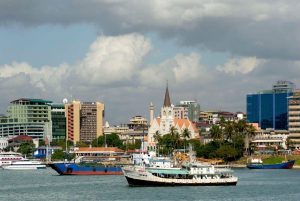National carrier Kenya Airways plans to send home some of its workers as its nationalisation starts in the next few days.
The airline’s acting chief executive Allan Kilavuka in a memo to staff last week said the layoffs and restructuring “is part of Operation Pride turnaround programme”, KQ’s chosen route to profitability.
“Roles will change; some maybe enriched while others are merged. I also want to be clear that as difficult as it is, some roles will disappear altogether, resulting in redundancies,” said Mr Kilavuka in the letter to employees, a copy which was seen by the Business Daily.
Mr Kilavuka has, however, pledged to make the planned redundancy humane “and will involve relevant stakeholders as required by the law.”
The planned retrenchment has sparked sharp reaction from the Kenya Aviation Workers Union (Kawu).
Kawu Union secretary-general Moss Ndiema in a letter to the airline says sending workers home will not address the “perennial financial malady currently facing the carrier.”
Instead, Mr Ndiema says, mismanagement and corruption at the airline ought to be addressed for a return to profitability.
He further argues that the airline is yet to notify the union of its intention to send home workers, adding that KQ must stop the exercise until the right procedure for layoff is arrived at.
“In view of the above, we urge you to put on hold the restructuring exercise, pending joint consultation between parties as envisaged by the law,” Mr Ndiema says in the January 28 letter.
The airline is planning to send home workers barely a month after it issued a profit warning for the year ending December, signalling its losses will widen beyond the Sh7.56 billion the national carrier posted last year.
This will sink it deeper in the red. The airline is already nursing half-year losses that more than doubled to Sh8.56 billion, complicating the recovery prospects.
The airline last reported a profit in 2012 when it closed with net earnings of Sh1.66 billion. Its worst performance was in 2016 when it booked a Sh26.2 billion loss. In 2017, it recorded a Sh10.2 billion loss.



